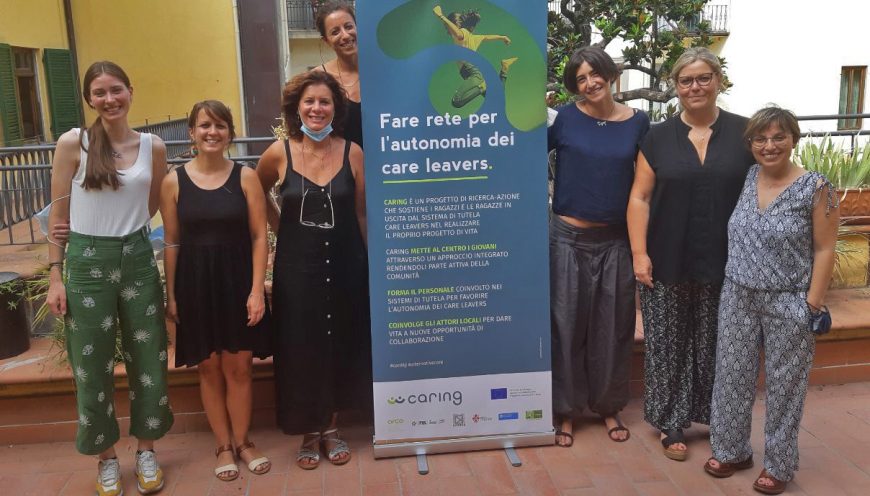First internal workshop of the Caring project. The partners met in Florence on 27 July 2021 to discuss, bring forward empirical evidence and testimonies on their work with care leavers and professionals of alternative care systems. The aim of the meeting was twofold: on the one hand, to present the first results of the situation analysis, the mapping of foster care in the territories of Florence and Prato; on the other hand, to share good practices and theoretical approaches that focus on the theme of participation.
The contents have been elaborated to offer scholars and professionals in the field a dedicated perspective on the issue of children’s well-being in alternative care systems, with a particular focus on care leavers, i.e. those who are in the process of leaving the system.
The well-being and well-becoming of care leavers is an area that often does not receive sufficient attention, despite the fact that care leavers have higher risks than other peers of falling into poverty, having mental health problems, and feeling isolated. In this sense, it is crucial to provide boys and girls with the tools and opportunities to pursue their own life plans. The role played by professionals is fundamental, but it must also be accompanied by awareness-raising activities in the community, which must be able to welcome, promote and listen.
Currently, society still tends to adopt a protective view of children, in which they are seen almost exclusively as individuals who need care, attention and support to reach adulthood, and only rarely as agents capable of making valid choices. However, if boys and girls have the time, opportunity and are put in a position to do so, they demonstrate not only that they have experiences, opinions and perspectives to express, but also that their expression can contribute positively to decisions that affect their rights and well-being.
For this reason, at the core of Caring there is the need to create the space for an effective participation of care leavers to where they can build their own life project.
To read the Situation Analysis Report and the Good Practices Resources Guide head to the Repository section!

